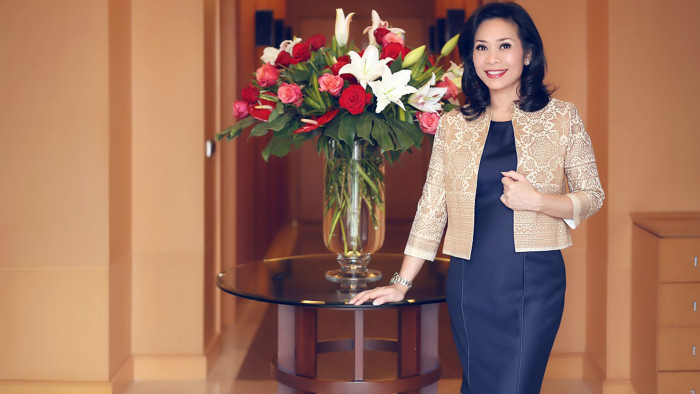Women in Business — Noni Purnomo

Roula Khalaf, Editor of the FT, selects her favourite stories in this weekly newsletter.
Noni Purnomo is president director of Blue Bird Group, a taxi company started in the garage of her family’s home in Jl Cokroaminoto, in central Jakarta, when she was a little girl.
She is also the president of Blue Bird Peduli, the company’s charitable division, which recently launched the Women Empowerment Project that aims to empower the wives of the 30,000 male Blue Bird Group drivers and employees. She completed an engineering degree at Australia’s University of Newcastle followed by an MBA (Finance and Marketing) from University of San Francisco (USF) in 1997.
1. Who are your business influences?
Our customers, our employees and drivers, our management team and shareholders are all stakeholders of our business. However, I pay specific attention to our drivers. They taught me the value of hard work and I continue to learn from them every day. I saw this as as a privilege. That respect for our employees is at the heart of the strategy that I am leading today.
2. What has been your best business decision, and your worst?
My best business decision has been to concentrate on continuously improving our processes and not wait for them to be obsolete. Our industry is going through rapid changes and we need to be constantly prepared. The worst decision is not to make any decision and become complacent because of the leadership position we currently have in the market.
3. Why did you choose to study at USF?
I was drawn by the city. USF also attracted me because it is a smaller size university that offers warmth and closeness among the students.
My decision to study for an MBA in finance and marketing was mainly led by the family business needs. As with many family companies, the particular challenge faced at the time was how to separate family and business finance. I combined financing with marketing because I think it is very important for a leader to understand both sides of driving growth, the gas and the break.
4. What is your favourite memory of business school?
My favourite memories are the team work and student associations. I was very active in leading student groups. I enjoy people, working in teams and engaging with others towards reaching a goal. I believe corporate culture is one of the important success factors of Blue Bird Group.
5. What were the gender dynamics like growing up?
I am blessed to have been raised in a family where gender is not an issue and my brothers and I were treated as equals. Although at university, there were only four females out of 118 in my year, I always believed that I had a voice on the table and that I was contributing to the diversity not only of gender but of thought and ideas.
6. What has been your most valuable lesson from life to date?
You cannot control rain and thunder. Just as with the weather, in business it is not always sunny. Accept reality and embrace the good and bad times in life, making the best out of both.
Another simple but powerful lesson I learnt in school and continue to follow is never postpone work that is due today.
7. What would you do if you were dean of a business school for a day?
If I were dean of a business school for the day, I would encourage students to discover what they like and focus on it so they can strengthen their skills in what they are passionate about.
8. What advice would you give to women about to graduate from business school?
Don’t limit yourself to what is expected of you and be open to new possibilities. Pursue a job that fits your vision and passion.
9. How do you deal with male-dominated work environments?
I actually embrace these environments as they provide opportunities to break stereotypes. I find it more beneficial being a minority. Marketing 101 [is about] product differentiation - use it.
10. If you could have your time in business again, what would you do differently?
I don’t think I would do things differently, as each decision made was the best decision I could have made at that particular time. The outcome may have turned out different to what I expected, but at the time I could not have known. There is no guarantee of a positive outcome if I had made a different decision, so I don’t believe I could have done it differently.
Comments